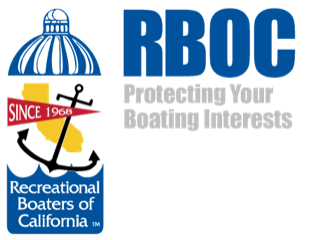RBOC is requesting that boaters take action by December 16 in opposition to the latest draft Delta Conveyance that would negatively impact the ability of the recreational boating public to navigate in the waterways of the Sacramento-San Joaquin Delta.
To take action by email, mail, verbally or online: click here
Let us know that you have taken action by emailing us: rboc@rboc.org.
RBOC opposes this Delta Conveyance Project in comments submitted to the California Department of Water Resources. For a copy of the letter: click here.
More on our position:
RBOC opposes the Delta Conveyance Project that would negatively impact the ability of the recreational boating public to navigate in the waterways of the Sacramento-San Joaquin Delta.
RBOC has commented previously and consistently as the state has considered the Bay Delta Conservation Plan, the California Water Fix and now the single Delta Conveyance Project.
This project has several fatal flaws. Specific to recreation, the project would severely disrupt navigation, boating-related commerce and communities throughout the lengthy, fourteen years of construction. It is a false assumption that recreational activity would merely move to other areas.
There is a potential for the project to significantly increase the transport of invasive species into the Delta waterways, and to exacerbate the occurrence of harmful algal blooms. These reduce recreational opportunities on the waterways and already impose significant costs on the boating community.
These boating impacts would be long-term and even permanent. However, the project fails to adequately identify and fully mitigate these impacts with certainty.
While the project might enhance the availability of fresh water for transport out of the Delta, the $14 billion expenditure would hasten the demise of aquatic conditions in the Delta as climate change occurs. The foreseeable impacts include higher air temperatures, varying seasonality of inflows, fluctuations in wet weather periods as well as droughts, decreased snow melt, increased risk of wildfires, saltwater intrusion further into the Delta, higher sea levels, and decreased water quality especially during droughts.
However, the draft environmental impact analysis inadequately analyses these future risks. It unrealistically limits the future conditions only to the year 2040 for the evaluation of the climate as well as social impacts. It also fails to either disclose or evaluate numerous uncertainties, unknowns, and assumptions associated with the project.
To the contrary, the laws, policies and projects that are already in place including water conservation, recycling, ground water recovery, desalination plants, surface water storage, ground water management, support a No Project Alternative.
RBOC remains concerned that this project creates no new sources of water to address the impacts of the drought, climate change, and population growth. The primary emphasis is to move high quality water from the Delta, which would leave poor quality water for the inhabitant fish species, wildlife and humans. The project does not restore and protect the Delta and its ecosystems. The mitigations are weak to non-existent and in many instances, impacts are mis-characterized as ‘LTS’ [less than significant] to ‘NI’ [No Impact].
In summary, the key concerns are:
Disruption to navigable waters in the Delta for 14 years during construction
Does not adequately address climate change and its impacts on decreased snow melt
Unquantified Groundwater Impacts (for Example Table 8.0) non meaningful LTS – Less Than Significant
Does not create any new sources of water
Will wreak havoc on the aquatic species, wildlife, inhabitants, recreational users and supporting industries
For more information on the Delta Conveyance and the Draft EIR: click here
